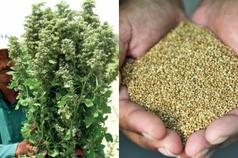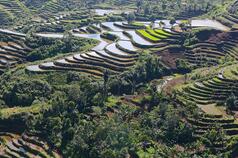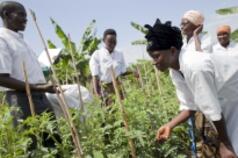LAUNCH Food is Australia and USAID’s latest open innovation challenge that seeks food related innovations to help curb crippling malnutrition in the Indo-Pacific and beyond.
GFAR is participating together with FAO in the H2020 project “Big Data Europe: Integrating Big Data, Software & Communities for Addressing Europe’s Societal Challenges” (BDE).
‘The Economics of Ecosystems and Biodiversity’ (TEEB) Office, hosted by the United Nations Environment Programme (UNEP), is seeking motivated individuals who are looking for a challenging, yet rewarding role in the content development of a technical report on the ‘Scientific and Economic Foundations’ for a project on ‘TEEB for Agriculture & Food’.
‘The Economics of Ecosystems and Biodiversity’ (TEEB) Office, hosted by the United Nations Environment Programme (UNEP), is seeking motivated individuals who are looking for a challenging, yet rewarding role in the content development of a technical report on the ‘Scientific and Economic Foundations’ for a project on ‘TEEB for Agriculture & Food’.
The conference will be held in Dubai on December 6-8, 2016. It will bring together leading scientists, practitioners and decision-makers from the public and private sectors to showcase the latest developments in quinoa research, production and trade.
What are integrated landscape approaches and how do we put them in practice on the ground?
These questions – important when considering sustainable land-use management amid competing demands – will be discussed at the upcoming CIFOR and partner-hosted PEFC stakeholder dialogue in Bali and the Global Landscapes Forum in Marrakesh.
TAP is pleased to communicate that with the financial support of GFAR, TAP Common Framework on Capacity Development for Agricultural Innovation Systems synthesis documents have been translated into French and Spanish, and published online by CABI on behalf of TAP Partners.



